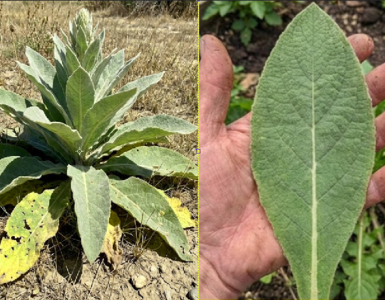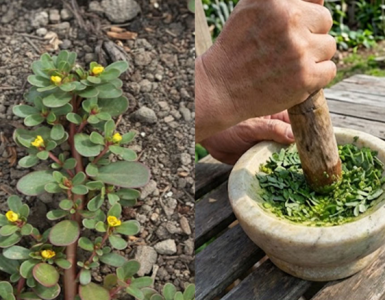Guava leaf tea has gained attention in wellness circles due to its potential health benefits, often attributed to the rich blend of antioxidants, vitamins, and beneficial plant compounds found in guava leaves. While guava fruit itself is highly nutritious, its leaves are packed with unique properties that promote various aspects of health. Here are seven impressive health benefits of guava leaf tea that may inspire you to include it in your wellness routine.
1. Enhances Digestive Health
Guava leaf tea is often recommended to support digestive health due to its antibacterial and anti-inflammatory properties. The tea can help alleviate common digestive issues such as diarrhea, constipation, and bloating. Compounds like quercetin and other antioxidants in guava leaves help inhibit harmful bacteria in the intestines and improve the balance of gut flora. This can enhance nutrient absorption and support a smoother digestive process.
How to Use It: For digestive relief, sip on a cup of guava leaf tea after meals. It can help ease bloating and discomfort, especially after a heavy meal.
2. Regulates Blood Sugar Levels
One of the most researched benefits of guava leaf tea is its ability to help regulate blood sugar levels. Studies suggest that guava leaves may inhibit certain enzymes responsible for breaking down carbohydrates into glucose, resulting in a more gradual release of sugar into the bloodstream. This can be especially beneficial for people with diabetes or those looking to manage blood sugar levels more effectively.
How to Use It: Drinking guava leaf tea after meals can help reduce post-meal glucose spikes. This could be a helpful habit for individuals with diabetes or pre-diabetes.
3. Aids in Weight Loss
If you’re looking to lose weight, guava leaf tea can be a beneficial addition to your diet. The tea is low in calories, and the compounds in guava leaves may help slow down the conversion of complex carbs into sugars, which the body stores as fat if not burned off. By moderating sugar release, guava leaf tea can help control hunger pangs and maintain a steady energy level.
How to Use It: Replacing high-calorie, sugary drinks with guava leaf tea can help you stay hydrated without adding calories. Drinking it between meals may also curb cravings.
4. Boosts Heart Health
Guava leaves are rich in antioxidants, particularly quercetin, which is known for its cardiovascular benefits. This powerful antioxidant helps reduce LDL (bad cholesterol) and triglycerides while promoting higher levels of HDL (good cholesterol). By managing cholesterol levels and reducing oxidative stress, guava leaf tea supports heart health and may lower the risk of heart-related diseases.
How to Use It: A cup of guava leaf tea daily can contribute to heart health, especially when combined with a balanced diet and regular exercise.
5. Improves Skin Health
Thanks to its antioxidant and antibacterial properties, guava leaf tea is often used to promote clear and healthy skin. The antioxidants fight free radicals, which can cause skin aging, while antibacterial compounds can help combat acne-causing bacteria. Drinking guava leaf tea regularly may improve skin texture, while applying it topically can soothe irritated skin.
How to Use It: Drink a cup daily or use cooled guava leaf tea as a facial rinse. This can help reduce acne and soothe inflamed skin.
6. Strengthens Immune Function
Guava leaves are high in vitamin C, which is known to support a healthy immune system. The immune-boosting effects of guava leaf tea help the body ward off infections like the common cold and flu. The antioxidants in guava leaves also protect immune cells from damage, allowing them to work more efficiently.
How to Use It: For immune support, drink guava leaf tea regularly, especially during flu season or when you’re feeling under the weather.
7. Eases Respiratory Issues
Guava leaves have natural anti-inflammatory and antimicrobial properties that may help relieve respiratory issues such as coughs, bronchitis, and sore throats. The compounds in guava leaves can soothe the respiratory tract, reducing inflammation and promoting easier breathing. This makes guava leaf tea a popular remedy in traditional medicine for respiratory health.
How to Use It: Warm guava leaf tea can be consumed during respiratory infections to help relieve symptoms and support a quicker recovery.
How to Make Guava Leaf Tea
Making guava leaf tea is simple and can be done with fresh or dried guava leaves:
- Gather 5-10 fresh or dried guava leaves and wash them thoroughly.
- Boil two cups of water in a saucepan.
- Add the guava leaves to the boiling water and let them simmer for about 10-15 minutes.
- Strain the tea to remove the leaves and let it cool slightly before drinking.
Adding a bit of honey or lemon can enhance the taste if you prefer a sweeter or more refreshing flavor.
Guava leaf tea is a natural and versatile beverage with numerous health benefits. Whether you’re looking to improve digestion, support your immune system, manage blood sugar, or simply enjoy a refreshing drink, guava leaf tea can be a valuable addition to your routine. Just be sure to consult a healthcare professional before making it a regular part of your health regimen, especially if you have existing health conditions or are pregnant.






Add comment